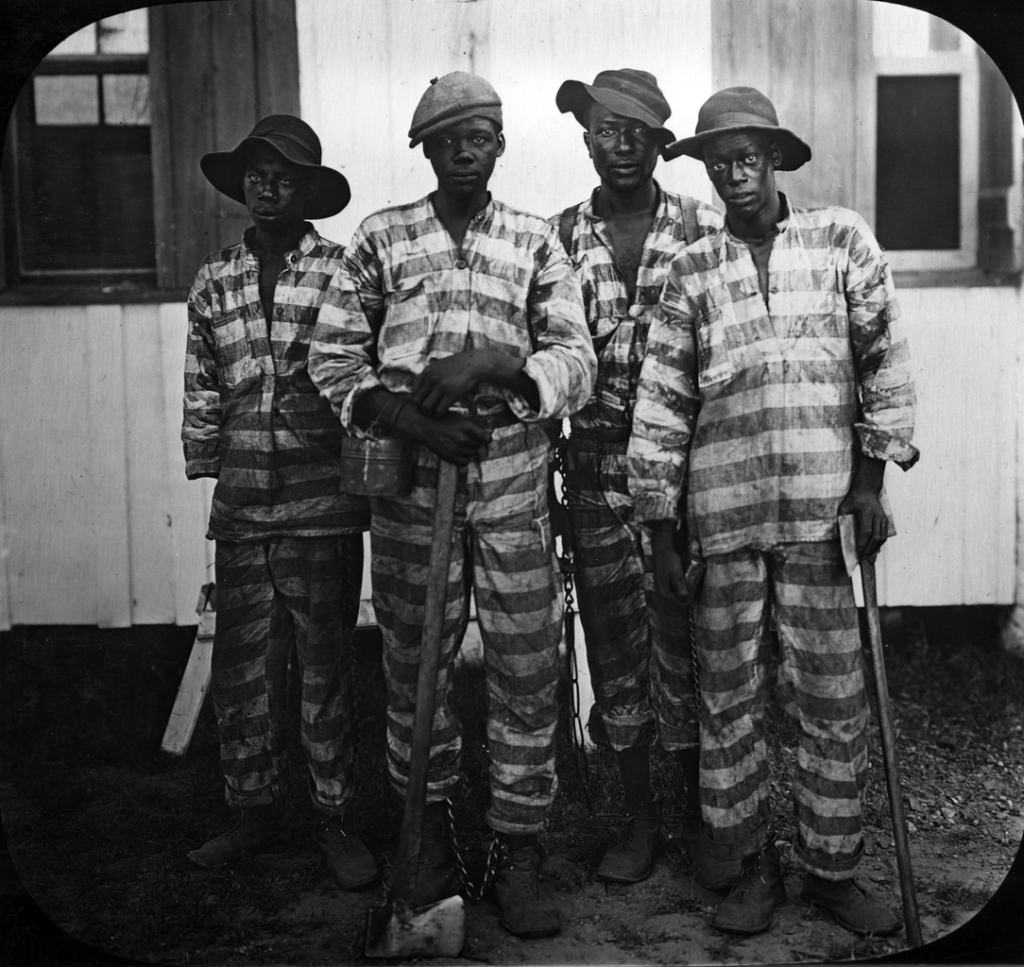
In light of the recent, much-needed discussion of this country’s racial problems, it’s important to explore the problematic loophole of the Constitution: the 13th amendment, which allows businesses to exploit African American prisoners through convict leasing.
The 13th Amendment officially abolished slavery in 1865 but with a caveat. The 13th Amendment states “Neither slavery nor involuntary servitude, except as a punishment for crime whereof the party shall have been duly convicted, shall exist within the United States, or any place subject to their jurisdiction.” Interestingly enough, grammar has finally found a way to be legitimately useful, if finicky: “except as a punishment for crime” is the loophole that has been exploited in our country for at least a century, and proves that the 13th amendment is in dire need of, well, amending. 25% of world’s prisoners live in US prisons, one of the few things we lead the world in. These prisoners are used by industries as part of “convict leasing” to industries and businesses, in a practice that has threatened and continued to threaten the moral fabric of our country.
In a convict-leasing program, the prisons lend the prisoners to corporations, plantations, coal mines and other industries. The prisoners worked for free, corporations got cheap labour and private prisons made money. This was a way for both private prisons and corporations to continue treating African Americans as slaves. Convict leasing was very popular in the southern states, finally by early 20th century even though politicians wanted to continue with the program, the businesses wanted no part in it not because they had sympathy for the convicts, but they didn’t like the low quality of work from the prisoners.
Even though officially convict leasing was abolished in the early 20th century, corporations and private prisons continued with the practice. Now, the difference is that prisoners don’t work for free but for a pittance-an average of $2 per day.
As illustrated in the Netflix documentary 13th by Ava Duvernay, that you can watch right here. The documentary covers the evolution of mass incarceration in this country, and details how slavery as a system of exploitation progressed into sharecropping, which then progressed into our present problem of over-incarceration. Though there are many key reasons for why this problem exists, a few being the incentives to lock up as many people legally possible for forced corporate labor, the 1993 bill passed by Bill Clinton to militarize the police, and the “three strikes” rule that turned innocent marijuana violations into life sentences, the main one is simple-racism.
As referenced by the Marshall Project, when crack cocaine was abused in the 1980s, black people were disproportionately arrested in disgustingly high numbers as compared to white people. Though they ‘regret’ it now, politicians on both sides of the aisle in that generation—among them former Presidents Bill Clinton and Ronald Reagan—implicitly made this the center of their task to stop crime. As shown in the article, although Clinton cites the bill as a necessary evil, stating that it had caused the American crime rate to sharply decrease, he’s most likely wrong. Crime had already begun to wane, with cocaine and its associated violence decreasing. All that was accomplished was suddenly creating a captive workforce for private prisons to benefit off of.

Source : https://returntonow.net/2016/06/13/prison-labor-is-the-new-american-slavery/
Tens of thousands of inmates are used for labor everyday for grunt work and specialized labor. Even now, these prisoners (most of whom have committed nonviolent violations) are made to work for companies, and usually they can expect their minuscule wages to be garnished by up to 80%. As shown in the National Review, though these jobs attempt to promote recidivism and reward prisoners for good behavior, they end up being so menial that there is no possible way for the tasks to be useful to the prisoners. Widely exploited, these prisoners are kept as slaves for eternity.
Victoria’s Secret, Microsoft, Walmart, Starbucks, Whole Foods are among many others who employ prison labor. It’s a good thing that prison laborers are used productively, but things become murky when African Americans are imprisoned unnecessarily for prison labor. Buycott.com lists the whole list of companies that use prison labor.
It is important for all Americans to learn about racial injustice, and the 13th amendment is a starting point. As a consumer, we can be cognizant of the companies that employ prison labor and buy from companies that are ethical. And, if you haven’t watched the documentary 13th then do watch it. Apart from Netflix it’s available on YouTube too.
Written by: Shlok Sharma